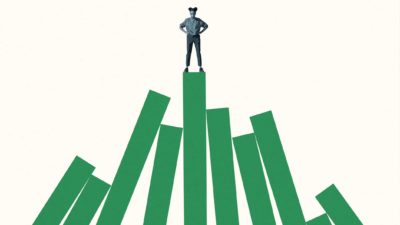ASX shares can help millennials retire before their parents.
There are a lot of people out there that have not been building up their retirement nest enough to be able to retire comfortably at 65, perhaps not even by 70.
I don't know every family tree out there. If you're a millennial who has parents who are about to retire in 2021 I'm not sure I can help. But the younger millennials – those born in the mid 1990s – have the potential to beat their parents to retirement if they work hard at it. I think ASX shares are key.
Why are ASX shares the answer?
I believe that most asset classes offer very little potential for long-term wealth growth. Cash and bonds offer very little return due to the RBA's ultra low interest rate.
I think capital city property could be permanently changed by the coronavirus crisis. More people may decide to rent than buy with cheaper rental prices (lowering demand for property buying). Immigration could be low for a long time. Interest rates can't really go any lower. People may want to avoid big cities and live in small regional areas.
ASX shares on the other hand are great for millennials to invest in. The purchase costs are very low (think how expensive stamp duty and other buying fees are). You can start with as little as $500, whereas you need a huge cash deposit for a property. Most of those property return calculations don't include the costs of purchasing. Think of other costs of negative gearing, the loss of money when the property is vacant and so on. These usually aren't included either.
Plenty of millennial parents may be invested in the wrong assets at the moment.
Which investments would be good ideas?
Not every ASX share investment is a good idea. Expensive and poor performing investment managers are drains on your potential wealth. Plenty of people just own mature, low-growth businesses like Commonwealth Bank of Australia (ASX: CBA), Telstra Corporation Ltd (ASX: TLS) and Woolworths Group Ltd (ASX: WOW). These probably won't do much over the 2020s.
It's growth that will make the biggest difference. Individual ASX shares like A2 Milk Company Ltd (ASX: A2M), Pushpay Holdings Ltd (ASX: PPH), Brickworks Limited (ASX: BKW), Bubs Australia Ltd (ASX: BUB) and Altium Limited (ASX: ALU) are names that I think could be much bigger businesses in five years.
There are some listed fund managers that I think have a very good strategy. Does their style mean they're likely to produce strong returns over the long-term? Some ideas are: WAM Microcap Limited (ASX: WMI), MFF Capital Investments Ltd (ASX: MFF), Magellan Global Trust (ASX: MGG) and PM Capital Global Opportunities Fund Ltd (ASX: PGF).
Many millennials find the easiest way to invest in shares on the ASX is in low cost exchange-traded funds (ETFs). Some examples are: BetaShares Australia 200 ETF (ASX: A200), iShares S&P 500 ETF (ASX: IVV) and Vanguard MSCI Index International Shares ETF (ASX: VGS).
How fast could a millennial retire?
I'm not sure how much your finances would be able to invest. But let's say you make it a big goal in you're life and you're able to achieve returns of 10% a month with ASX shares. According to Moneysmart if you were aiming for $1 million in 20 years (to beat your parents) you'd have to invest around $1,325 a month. Obviously if you invested more, or made better returns, then you could return quicker.
I think that's entirely possible for two-adult household who diligently saved and invested each month.








